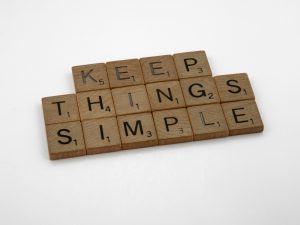Darren:
On this episode of The Engaging Marketeer, I’m speaking with Martyn Thorp of Hera Creative, named after the Greek goddess. Martyn helps people build both company and personal brands, so today we’ll be talking about what a brand really is and how to build one that stands out against the big names.
Martyn, welcome.
Martyn:
Thanks, Darren. Glad to be here.
Darren:
First question — your company is called Hera Creative. Is that Hera, the Greek goddess?
Martyn:
It is. Ten points to you. Hera was the daughter of the Titans, sister and wife of Zeus. She was the goddess of marriage and love, but we think of her as the original designer — everything intertwined and symbolic.
We chose Hera because we’re family-oriented. We build relationships, not transactions. We don’t do one-off jobs and walk away; we form long-lasting partnerships.
Our motif is the peacock, which ties into the mythology. Hera’s watchman, Argus, had a hundred eyes. When Zeus destroyed him, Hera placed his eyes in the tail of the peacock. Every eye is unique, like a fingerprint. That reflects our belief that every client is individual.
It took about six months of research, but it fits perfectly with how we operate and the tone of our brand.
Darren:
So what got you into Greek mythology?
Martyn:
I’ve always loved history. The Greeks fascinate me because they claim to have invented everything. Then the Romans came along, copied them, and said they’d done it first. I’ve always found it interesting how their gods were powerful yet so childish — jealous, petty, emotional. The Trojan War started over a golden apple, for example. It’s absurd, but human.
Darren:
That’s true. And of course, the Romans even wrote about being descended from the Greeks. Virgil’s Aeneid is literally about a Greek soldier founding Rome.
Martyn:
Exactly. It all loops back.
Darren:
Did you ever consider a career in mythology?
Martyn:
No, there’s not much work in that field. I’ve always been more creative than academic. I was that kid who loved the adverts more than the TV shows.
The psychology behind brand identity hooked me — how visuals, tone, and emotion shape perception
Darren:
You mentioned brand earlier. People often quote, “A brand is what people say about you when you’re not in the room.”
Martyn:
Exactly. But to make it simple, a brand is your reputation. Everyone has one — individuals and companies alike.
Darren:
So what makes a company brand?
Martyn:
It’s what you’re known for without needing to explain it. Take Apple. They sell technology, but people don’t buy Apple for the tech specs — they buy the feeling: simplicity, creativity, community. You’re either an Apple person or you’re not.
Nike is similar. They began as a running brand but evolved into a symbol of freedom. When you buy Nike, you’re buying identity and aspiration, not shoes.
Brand is how people feel about you. It’s intangible but powerful.
Darren:
That’s why people say, “No one ever got fired for hiring Dell.” It’s assurance — you know what you’re getting.
Martyn:
Exactly. Dell’s a good example actually. When they tried to launch MP3 players years ago, people didn’t buy in because Dell was already known as a reliable computer company. They’d built a brand around PCs, not lifestyle. Apple succeeded because they sold community, not hardware.
Darren:
So how do branding and marketing fit together?
Martyn:
They’re different but inseparable.
Marketing without brand is like having the world’s biggest diamond and keeping it in your pocket
Early on, you need brand identity — logo, colours, tone — and a clear message. Then you use marketing to get that message out. Once you grow, brand strategy helps refine it so people trust you. They work hand in hand.
Darren:
Let’s say someone’s starting a new business — maybe an accountant or financial adviser. What steps should they take to build a brand that can compete with big names?
Martyn:
Start with your why. Why are you doing this? What problem are you solving, and how can you solve it better than others?
When we started Hera, I’d spent nearly 20 years in corporate. I was tired of seeing companies baffle clients with jargon. We built Hera to simplify things and make branding transparent.
And yes, we swear if we need to. People overcomplicate things to justify high prices. But if you can’t explain it simply, you don’t understand it.
That’s the first step: your why. Then figure out your what — what you’re doing to achieve it.
Martyn:
Take accountants, for example. Most people think they’re boring. They’re not. They’re creative problem solvers. We help them show personality.
One of our clients is a cyclist. We used cycling analogies in their marketing. Another’s a rugby player and heavy metal fan. Pulling those traits in makes them human, not just number crunchers.
People buy people. That’s how you turn a service business into a relatable brand
Darren:
So how does someone find their USP when every competitor says the same things — good service, fast response, go the extra mile?
Martyn:
Look inward. Those clichés aren’t USPs. Explain how you do those things differently. Give proof.
Our USP is that we strip out industry jargon and operate like a family. We ask hard questions to pull out clients’ truth. That process can be uncomfortable, but that’s where real differentiation comes from.
Ask yourself tough questions. Get feedback from clients. Ask them why they chose you, why they’d stay. Your USP will be in their answers, not yours.
If your USP comes from someone else, it’s genuine. Just like your brand — it’s what others say about you.
Darren:
Do you help people with personal brands as well?
Martyn:
Yes, though it’s trickier. Everyone has one, but few like hearing the negatives. And it’s not about sharing everything. You decide what stays private. My kids aren’t on social media at all. My dog is.
We vet clients before starting. Do they want to be completely open, influencer-style, or do they want a professional brand built around their expertise?
Personal branding has levels: professional, personal, influencer. You need to know which you want.
We’ve worked with clients who saw influencers doing well and thought they wanted that life, only to realise they hated being public. We’ve ended partnerships over that — if someone isn’t coachable or honest about their intentions, it won’t work.
Building a personal brand takes resilience. You must handle praise and criticism equally. It can grow slowly, but it can be destroyed overnight.
As the Stereophonics lyric says: “It takes one tree to make a thousand matches, but one match to burn them all.”
Authenticity is key. If your actions don’t match your message, your brand collapses
Martyn:
There was an airline years ago, I think Continental, that was failing badly — constant delays, terrible reputation. A new CEO came in and realised the issue wasn’t marketing, it was the staff.
He fixed the culture first. When the team became engaged and happy, customers noticed. Over a decade, the airline became profitable for the first time.
That’s proof that brand starts internally. If your people don’t live the message, your brand fails externally.
Darren:
And of course, sometimes brands collapse overnight, like Gerald Ratner calling his own products rubbish.
Martyn:
Exactly. Authenticity cuts both ways.
Separating Personal and Company Brands
Darren:
If you’re building a personal brand and a company brand, how tied should they be — especially if you plan to sell the business one day?
Martyn:
They should be linked, but separate. Your personal brand builds credibility; your company brand builds value.
Don’t name your business after yourself if you ever plan to sell it. Create a brand that stands independently.
Your personal brand should showcase your abilities and values. Your company brand should show collective capability and customer experience.
Gary Vaynerchuk is a good example. His personal brand drives attention to his companies, but each one — VaynerMedia, VaynerSports, etc. — stands alone with its own team and credibility. That’s the balance you want.
Darren:
That makes sense. I’ve been working on that separation myself with Engage Web. I’m not the business — it runs through the team.
Are there any industries you’d love to work with but haven’t yet?
Martyn:
My white whale is Weetabix. I’ve worked with huge brands — Mercedes Formula 1, Next, Hashet Publishing — but Weetabix fascinates me.
They’re an iconic British brand, yet their messaging has holes. I’d love to modernise it without losing heritage. I nearly got in years ago but the contact left. Still chasing that one.
As for Mercedes, the Brackley team we worked with is essentially a data centre — not as glamorous as people imagine. The racing is the exciting part; the backend is spreadsheets and testing. It’s a reminder that perception and reality often differ in brand.
Darren:
That reminds me of the Apple campaign — Microsoft talked specs, Apple said “1,000 songs in your pocket.”
Martyn:
Exactly. Apple sold the outcome, not the technology. Same with Nike — they sell freedom, not shoes. That’s branding done right.
Darren:
A sales trainer I know, Andy Bounds, calls that “the afters.” People don’t buy what you do; they buy what they get after you’ve done it.
Martyn:
Spot on. No one wants a website — they want the leads it generates. The afters are what people remember.
Martyn:
There are two types of entrepreneurs. Some want money — cars, houses, lifestyle. Others want a legacy.
The first group often burns out. The second builds brands that last.
A brand is a legacy. It’s what people feel when you’re not there
Networking works the same way. The best networkers listen. They ask questions and remember details. They follow up thoughtfully. That’s brand in action — consistency, trust, reputation.
Martyn:
We started Hera in my bedroom for £12 — just the Companies House registration. No office, no fancy gear. People rush into offices and overheads before they’ve earned their first pound. You don’t need that.
Focus on clients first. Get paid. Then grow sustainably.
Darren:
Exactly. We did the same 16 years ago — started from a back bedroom with £200. We only got an office when it made sense. Now we own our building.
Martyn:
That’s the long game. There’s a patience problem today. Everyone wants instant success, but brand-building is like building a house. You can’t just throw bricks in a pile and expect it to form itself.
Darren:
Martyn, we’re out of time. If someone’s listening — maybe even Weetabix — and wants to contact you, how should they do that?
Martyn:
They can email info@heracreative.design. We’re also on Instagram at @heracreative and I’m on LinkedIn — Martyn Thorp, that’s Martyn with a Y, Thorp without an E.
Darren:
Perfect. I’ll include those links in the podcast description.
Martyn, thanks for joining me today.
Martyn:
Thank you, Darren. It’s been a pleasure.
More about Martyn:
Martyn Thorp is the founder and Managing Director of Hera Creative Design, a UK brand management agency that helps ambitious businesses clarify their positioning and build reputations that win trust and command higher prices. Hera’s work spans brand strategy, visual identity, website design, content marketing and social media, with an emphasis on plain-English guidance and measurable outcomes. Martyn brings close to two decades of industry experience and leads client engagements that cut through jargon to focus on brand perception, consistency and growth. He is based on the Isle of Wight, serves clients nationally, and also co-hosts the business and tech podcast The Geekly Upload. Recent roles and public profiles reflect his hands-on brand coaching, writing and speaking on brand stories and practical brand building.
You can connect with Martyn here:
Website: https://heracreative.design/
Facebook: https://www.facebook.com/Lord.Thorp/
Instagram: https://www.instagram.com/heracreativedesign/
LinkedIn: https://www.linkedin.com/in/martyn-thorp/
Threads: https://www.threads.com/@martynthorp
About your host:
Darren has worked within digital marketing since the last century, and was the first in-house web designer for video games retailer GAME in the UK, known as Electronics Boutique in the States. After co-founding his own agency, Engage Web, in 2009, Darren has worked with clients around the world, including Australia, Canada and the USA.
iTunes: https://podcasts.apple.com/gb/podcast/engaging-marketeer/id1612454837
LinkedIn: https://www.linkedin.com/in/darrenjamieson/
Engaging Marketeer: https://engagingmarketeer.com
Engage Web: https://www.engageweb.co.uk



